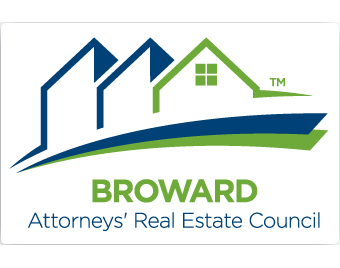Whether you are buying or selling, there is a lot on the line in a real estate transaction. According to the most recent data from Zillow (February 2025), the median home price in Florida is nearly $390,000. It is crucial that you get things done the right way. At The Law Offices of Odelia Goldberg, we are a Florida law firm that helps both buyers and sellers with a wide range of real estate matters. Our Fort Lauderdale real estate attorney explains the key things that all buyers and sellers should know about the real estate laws in Florida.
Four Things Residential Real Estate Buyers Need to Know About Florida’s Real Estate Laws
You need to have a written contract if you are buying real property in Florida. In this context, oral agreements are not legally enforceable. Under Florida Statutes § 725.01, certain contracts must be in writing to be legally valid, and that includes residential real estate transactions. An oral agreement is not an option for the purchase or sale of residential property in Florida.
A written contract for a real estate purchase is a good thing for buyers. When drafted properly, it helps to protect them by clearly outlining the terms, conditions, and obligations of the deal. It also provides protection and remedies in the event that a dispute arises. Your real estate purchase agreement will most likely be drafted and negotiated by your realtor, which is why it is important to have it reviewed by an experienced attorney.
How do you know if the home is the right purchase? As a general rule, buyers should have it inspected. Though Florida does not require an inspection, it is sometimes waived, especially in competitive markets. With that being said, Florida law does require sellers to disclose known material defects that could affect the value of the property. Recently, a special form for flooding must be disclosed from the seller to the buyer.
Under state law, buyers have a legal right to review these disclosures. Beyond that, they must formally acknowledge them before closing the deal. Some of the most common disclosures include information about roof leaks, mold issues, plumbing defects, or past flooding. While sellers must disclose known problems, buyers are still encouraged to get an independent property inspection.
During the inspection period, the buyer may cancel the contract for any reason. The seller is still bound to the terms of the contract during the inspection period.
As noted, there are certain disclosures that residential real estate sellers are required to make by law in Florida. However, the state more generally follows a “buyer beware” standard for residential real estate transactions. Sellers must disclose known material defects, but sellers are not required to conduct a comprehensive inspection/investigation of the property before selling it.
You may hear the state’s standard referred to as the principle of “caveat emptor.” It is a Latin term meaning “let the buyer beware.” The doctrine places the burden on buyers to conduct their own due diligence before purchasing residential property. Sellers are not obligated to guarantee the overall condition of the home. Buyers should proactively inspect the property before buying.
Most contracts are written on “AS IS” papers so that the buyer is not on the hook for any issues discovered during the inspection.
While Florida law does not obligate buyers to obtain title insurance coverage, a buyer will have a hard time finding a title company that will represent them in the transaction without title insurance. It is best practice for buyers in Florida to get title insurance.
Title insurance protects buyers and lenders from financial loss caused by defects in the title, such as undisclosed liens, ownership disputes, or recording errors. Notably, mortgage lenders almost always require buyers to get a title search for approval of their home loan.
Four Things Residential Real Estate Sellers Need to Know About Florida’s Real Estate Laws
It is important to emphasize that even if a seller uses an “as-is” residential contract, the legal obligation to disclose known, non-obvious material defects remains enforceable under Florida law. Sellers must disclose issues that could materially affect the property’s value or desirability, such as roof damage, electrical issues, or prior flooding. The duty applies even if the buyer does not ask.
What happens if the seller fails to disclose a material defect to the buyer as is required by Florida law? The answer is “it depends”—with that being said, it could potentially void the transaction outright, depending on the contract terms. Buyers may have several potential remedies available. In some instances, a contract can be voided based on fraud, misrepresentation, or failure to disclose. Given the risk, sellers in Florida should ensure that all relevant documents, including the property disclosure form, are complete and accurate.
Sellers of property within a homeowners’ association (HOA) or condominium must provide buyers with specific documentation before the sale is finalized. It is a requirement in Florida and is usually included in the contract. Among other things, the seller should provide the declaration of covenants, bylaws, budget summaries, and any applicable rules or restrictions. Florida law gives residential real estate buyers the right to review these documents and even cancel the contract within a statutory period if they are not satisfied. Sellers who fail to provide the required disclosures risk major problems. The HOA part of the information is included in the estoppel request and is typically received by the buyer AFTER the inspection period ends. It may be a good idea to have language in the agreement to include a provision for estoppel findings.
Finally, it is important for real estate sellers in Florida to be aware of our state’s documentary stamp tax requirements. In most Florida real estate sales, the seller is responsible for paying the documentary stamp tax, which applies to the transfer of property ownership. The tax is calculated based on the sale price and is typically due at closing. While parties can negotiate who pays, the burden typically falls on the seller unless otherwise agreed.
Contact Our Fort Lauderdale Real Estate Attorney Today
At The Law Offices of Odelia Goldberg, our Fort Lauderdale real estate attorney helps both buyers and sellers navigate transactions. If you are a buyer or a seller with any questions about Florida’s real estate law, please contact us today for a fully confidential consultation. With a law office in Fort Lauderdale, we provide solutions-focused real estate representation throughout South Florida.







The information on this website is for general information purposes only. Nothing on this site should be taken as legal advice for any individual case or situation.
This information is not intended to create, and receipt or viewing does not constitute, an attorney-client relationship.
© 2025 The Law Offices of Odelia Goldberg. All Rights Reserved. Privacy Policy. Web Development by IWD Marketing